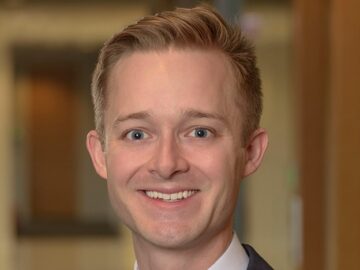Dr. Grayson Armstrong
Medical Director, Ophthalmology Emergency Services
Massachusetts Eye & Ear
Instructor in Ophthalmology
Associate Director, Ophthalmic Medical Student Education
Harvard Medical School
Dr. Armstrong research focuses on the real-world implementation of ophthalmic telemedicine, digital health, and artificial intelligence to enhance screening, triage, and diagnosis of ocular conditions. He has implemented novel models of telemedical care and assessed their performance in real world populations. He is also evaluating the real-world implementation of novel artificial intelligence models to investigate their utility and effectiveness. Dr. Armstrong has conducted multiple studies to evaluate disparities in the delivery of ophthalmic care. One major study conducted at the outset of the COVID-19 pandemic evaluated the differences in patient characteristics between those receiving telemedicine versus in-person care in populations historically marginalized in healthcare; this revealed that patients who were men, self-identified as Black, did not speak English, had a high school education or less, and were older were less likely to receive telemedical care. This work underscores the importance of prioritizing health equity in future telemedicine and digital health programs as well as developing strategies to reduce barriers to virtual care.
Additionally, through an American Macular Degeneration Foundation research grant, Dr. Armstrong and his team is working to address a critical clinical question in patients with age-related macular degeneration (AMD). They are analyzing whether the time from symptom onset or from presentation to the first anti-vascular endothelial growth factor (anti-VEGF) injection correlates with short-term and long-term visual outcomes in patients with neovascular AMD. To determine the optimal timing for anti-VEGF injections in patients with neovascular AMD and the urgency of referral to a retina specialist, the team is conducting a large retrospective study assessing the clinical outcomes of all eyes that received a first anti-VEGF injection for neovascular AMD, in relation to the time of symptom onset. Preliminary results from this study were presented at ARVO2024.
Finally, Dr. Armstrong is interested in improving the care of patients with ocular trauma and has evaluated the management of patients with open globe injuries. His research has ranged from the creation of educational video-based surgical curricula for ophthalmologists, to assessing single-institution and national-level trends in eye trauma care.

